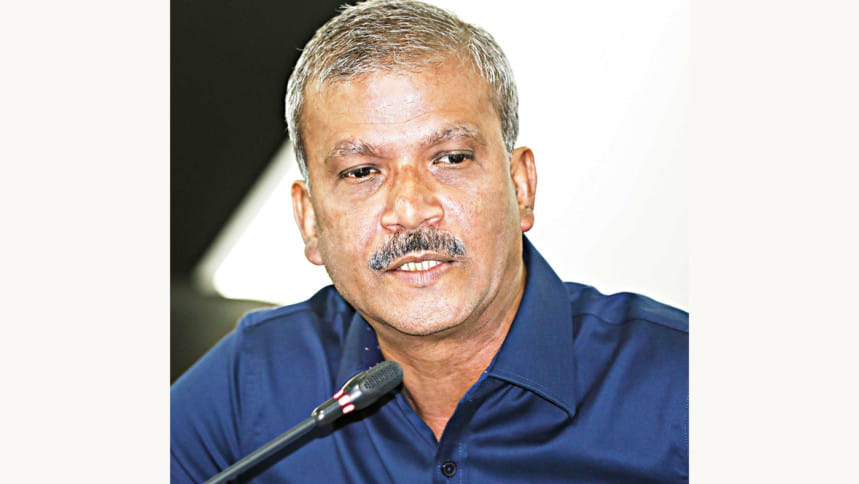Institutional reforms a must to ensure rights

When a party no longer fears losing power, it turns into a monster -- something we have seen during the past Awami League regime.
Law adviser Prof Asif Nazrul yesterday said protecting human rights in Bangladesh is not possible without reforming the state's three foundational institutions -- the executive, legislature, and judiciary.
He said simply passing laws does not ensure human rights, which require honest and capable institutions and a willingness to change ourselves.
"We need to cultivate a culture that upholds human dignity," he said while attending the 11th Human Rights Conference organised by the Human Rights Support Society (HRSS) at Dhaka University.
The adviser said after strengthening the three foundational institutions, others like the Human Rights Commission and the Information Commission should function more effectively.
He also said fair elections matter, noting that the elections from 1991 to 2012 had set the country on a progressive path.
Even in the 2013 city corporation elections under Sheikh Hasina's government, opposition candidates won in several cities, he said, adding that later, when the fear of losing power became indefinite, the Awami League began misruling.
"When a party thinks it might lose power after five years, it refrains -- if only out of fear -- from doing too much wrong. It violates human rights less. But when a party no longer fears losing power, it turns into a monster (danob) -- something we have seen during the past Awami League regime."
Rights activist Nur Khan Liton said as the country marks one year since the July uprising, concerns have emerged over the rise of new groups whose behaviour mirrors the very authoritarianism that was ousted.
"We must remain vigilant to ensure that we do not repeat the same fascist practices we once opposed," he said, adding that fascism doesn't exist only within state powers, but also in psychological and cultural spaces.
Huma Khan, senior human rights adviser at the UN Resident Coordinator's office in Bangladesh, referred to the recommendations made by the United Nations Human Rights in their report on rights violations during the July uprising.
She said a repeat of last year's crackdown can only be avoided through structural reforms mentioned in the report -- including the dissolution of Rab, ensuring judicial independence, addressing economic inequality, and ending the culture of political revenge.
Dhaka University Law Faculty Dean Prof Muhammad Ekramul Haque said if the judiciary itself becomes complicit in fascism, the values written in the Constitution remain unrealised.
He said law enforcement agencies play a major role in upholding human rights, but they must serve the rule of law, not political interests.
Barrister Sara Hossain, executive director of the Bangladesh Legal Aid and Services Trust (BLAST), said people like Michael Chakma and Barrister Arman were forcibly disappeared during the previous government's tenure for speaking out on the rights of citizens, workers, and ethnic communities.
"Many have lost their lives or their eyesight during the July movement just for demanding basic rights. Even after such serious human rights violations, a section of society still denies these brutalities -- both inside and outside the country," she said.
Families of July-August uprising victims and survivors of enforced disappearances during the AL regime shared their experiences at the programme.
Sanjida Khan, mother of Shaheed Shahriar Khan, said, "We live in a country where human rights are violated at every level. The bullets that pierced my son's chest were bought with the taxes I paid. The very security forces meant to protect us have become the killers of our children."
Michael Chakma, a survivor of enforced disappearance, recalled the trauma his family endured.
HRSS Chairperson Barrister Shahzada Al-Amin Kabir presided over the event.

 For all latest news, follow The Daily Star's Google News channel.
For all latest news, follow The Daily Star's Google News channel. 



Comments